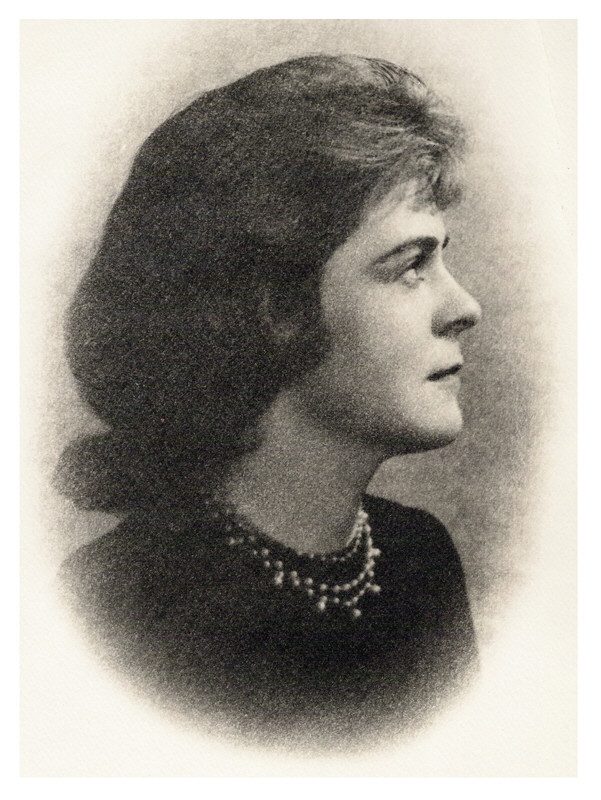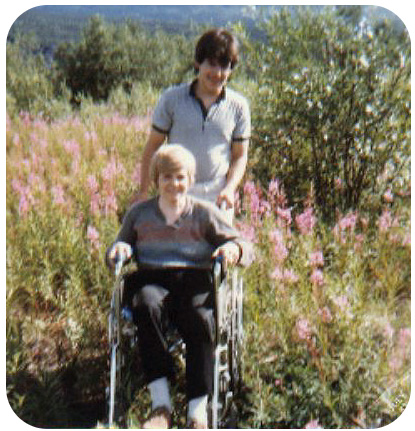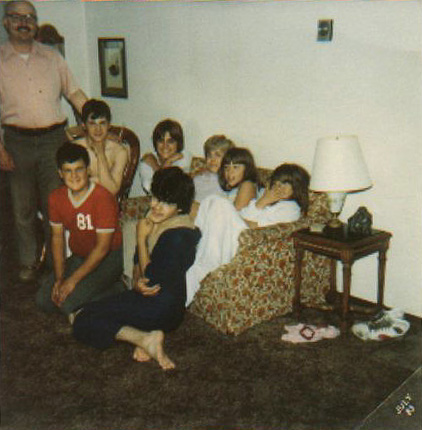Summary

My step into politics is based on where we as a community stand today. Divisive legislation and social campaigns are without empathy, that are breaking the networks in place for us to be informed, that are tearing at the fabric of our nation. There is an infiltration of local school boards, and the introduction of legislation in states that comes from national platforms that do not have our common interests in mind. There is disinformation in social media that is meant to be divisive, that tears on the intent and good will of society. I’m stepping into politics because the “our” in our voice needs to be represented. I have enough shared experience and humility to know that I should listen and understand before I speak, and that my actions affect a community that I love and have much respect for.
Here’s my profile on ballotpedia: https://ballotpedia.org/Greg_Green_%28Utah%29
My Story (long)
I am a 23 year resident of South Jordan, Utah, and have raised my family here since moving in the fall of 2000. If you are just interested in my professional background you can check my LinkedIn profile. However, it’s important to share my story so that you understand who I am, and the experiences that have shaped me.
I grew up as the son of a Forester, hunter and trapper. My father always said that he wanted to live where there were no sidewalks, and he pursued the outdoors with his family for all of his life. He moved from the east coast to study at Utah State University for one of the nation’s first programs in Forestry, and after he graduated in 1962 he began to pursue his ambition. I was born while he worked in the White Pines National Forest in Wisconsin. My early years were spent living on the Leech Lake Reservation of the Ojibwe/Chippewa in Minnesota, part of the Chippewa National Forest. In 1976 my father succeeded in getting a transfer to Alaska, so we moved to Southeast Alaska, then to central Alaska. I grew up in the Tongass and Chugach National Forests of Alaska.

In contrast, my mother attended Drew University, and American University as a Political Science major. She spoke French, dabbled in the arts, and worked at the Moroccan Embassy in Washington DC while in college. My parents met in 1959 when she worked a summer job as a waitress at an Italian restaurant in her hometown. My father could only afford a spaghetti dinner and a bottle of beer, but he returned for another meal and a date. This led to a lifelong commitment of 43 years. Until her diagnosis, she was the center of our family home.


In 1980, my mother was diagnosed with an aggressive form of Multiple Sclerosis. I was 13 years old. There were six kids in the family, and my oldest sister was beginning to experience psychosis that would later be diagnosed as Schizophrenia. I became a caretaker for my mother and for my younger siblings. My father took a desk job with the Forest Service so that he didn’t have to work remotely, but was still gone for 12 hours every day. Weekends were still his for the outdoors. It was an exceedingly difficult time for our family because we lacked resources for help. There was limited support. We always had caribou or moose in the freezer, and we had a garden and greenhouse. Summers were spent on the timberline cutting and hauling wood for winter. Our workouts were splitting and stacking cords of wood for the stove. We lived on sales and hand-me-downs, and I clearly remember social services visiting us to make sure that we had food on the table. I started working part-time in 1982 (then 14) for $4.25/hr so that I could afford my own clothes and haircuts, and I have worked ever since then. There are no entitlements to being poor. It means all of your time and effort focuses on finding stability and protecting yourself and your family.


I left Alaska in the summer of 1987 shortly after my mother was admitted to a dedicated care facility. My parents had to divorce because my father couldn’t afford the cost of care unless she became a ward of the state. No-one should ever have to be placed in a position to do this, and it was a travesty of our American health system that a family should have to go through that.
I moved to the Bay Area, California after enrolling at California State University, Hayward (now Cal State East Bay), but the reality was that I was financially poor and had no supports that I could rely on. Within a semester I was struggling to keep housing, was working multiple jobs and going to classes during the day. My university experience was short-lived. I worked as a security guard for a hospital, at UPS as a package sorter, and at Wells Fargo Bank as a teller. My “break” was having a college acquaintance recommend a job at Costco. It was the first full-time job that paid well, offered raises, a 401k savings plan, and provided insurance (I’m still a huge fan of Costco). I had none of those things before then. It was the first time that I felt hopeful about my future. I distinctly remember when I was able to begin donating money to United Way through work because I could afford to do so.
I met my wife Angela at the old San Leandro, California Costco warehouse. We lived and travelled together back to Alaska, where we were married and had our first child, then back to California where we had two more children, before moving to Utah. Prior to our last move we discussed careers, and I made a decision to pursue technical certifications that allowed me to bridge work to Information Technology. I worked first as a civilian contractor for the Oakland Army Base (now decommissioned), then hired on with PeopleSoft. We moved to Utah where I could work in newly company-acquired Vantive offices in American Fork.
At the time that we moved we were looking for a home that was affordable, in a community where we could raise our family. That is what brought us to Utah. The first home we purchased is the same home that we live in today. We were able to afford a home because we were fortunate to combine our incomes, work and build savings through a 401k program that was used for the down payment on our house.


Shortly after moving to Utah, our newborn daughter began experiencing seizures. By February 2001, we were able to get an MRI to confirm a diagnosis of Cerebral Palsy from an inutero stroke. It was devastating to hear that and try to understand what her future would be. As she grew it was more apparent the impact of pediatric stroke had; she had a left-hemiparesis (a partial paralysis of the left side of her body), intellectual and developmental delays (IDD), epilepsy, and a vision field cut. I’ll write more about this in the blog later. What is important here is that we found purpose with Natalie’s diagnosis. She is positive, outgoing, active and shaped our family for advocacy. This is also where our story for volunteerism and community outreach began. Natalie continues to live at home with us, and serves as a Global Ambassador and Athlete for Special Olympics Utah. She is part of the Utah Developmental Disabilities Council ALPS program, and the Advocates as Leaders Speaker Network.
In 2005, PeopleSoft was acquired by Oracle, and I became an Oracle employee. My role moved from Field Operations Management to Project Management, specializing in mergers and acquisitions. With my experience I obtained a Project Management Professional (PMP) certification with the Project Management Institute, as well as IT Service Management certifications in ITIL, with additional training in Agile, DevOps, Scaled Agile (SAFe) and Organizational Change Management. My focus at work has transitioned from onboarding acquired companies in an enterprise organization to implementing operational process and efficiencies. I currently manage application migrations for internal support systems, data center lifecycle updates, business analysis and internal communications support for Oracle Cloud Infrastructure. Opportunities need to be available for accessible post-secondary education. I continue to emphasize learning and education, whether through college, technical or vocational programs.
All three of our kids went through the public school system here. We initially started at Challenger School for pre-school and kindergarten programs for our two eldest children, but moved to Jordan District schools for the remainder of their K-12 education. Natalie attended pre-school in Bluffdale Elementary early intervention program, before attending kindergarten in a mainstream class at Welby. She began special education classes at Terra Linda when the district began revising cluster programs (more in the blog about this later). Public education is one of the most valuable assets of our community, and our teachers deserve recognition and support for their work. Social Emotional Learning (SEL) programs at school are integral to teaching empathy and connection. Curriculums should provide age-appropriate instruction that is not filtered by religion or revisionist thinking. Our children need to develop broader understandings of the world, and develop critical thinking and social skills to be successful.
In 2017 my son began having psychotic episodes and was experiencing auditory and visual hallucinations that were disturbing. This became a very difficult, stressful time for him and for our family. His paranoia and delusions raised concerns but we struggled to get him help. He was an adult, and did not want to seek treatment at that time. He lived at home until he was threatening the family, then lived in his car and was homeless for a period of time. We became that house on the block where the police would show up every so often. I was intimately familiar with the police non-emergency line and requests for a CIT officer. His threats were insufficient to take action for; unless he was actively harming himself or someone else they could not do more. He was arrested multiple times, had a gun confiscated, and had two incidents in jail. He had one voluntary commitment for depression, but his road to recovery began when I found him walking on the street, bloodied from an attempt to see “how far he could go” to cut himself. UNI was able to send an assessment team with police support, and it was through their assessment that he had an involuntary commitment for treatment. It was only after court-mandated processes to maintain medication (LAI – a long acting injectable), counseling and a successful entry to the Mental Health Court program that he began to recover. There is much work to be done for mental health programs, offloading community response from police to organizations that can be funded better to provide trained support, availability of services for homeless, and Medicaid offerings in Utah.
Today I’m a work-at-home dad. I’m celebrating 25 years as a technologist for an enterprise information company. My wife and I are caregivers to two adult children with disabilities who live at home with us, and our home is stable. We have a rescue dog and two rescue cats. We thrive with volunteer and advocacy work for organizations that are important to us which promote active lifestyles, inclusion, and mental health. We also support organizations for cancer treatment, epilepsy research, LGBTQ+ rights, and disability rights. With privilege comes much responsibility, and we are beholden to a community that we are part of.
Politically, I have been unaffiliated much of my adult life. I am an active voter and regularly participate in work at voting polls to support civic duty. I’m running as a Democrat in this election but emphasize that representation matters, that reasonable and pragmatic governance is needed. If elected I promise that I will be open and responsive to the constituents that I serve.
